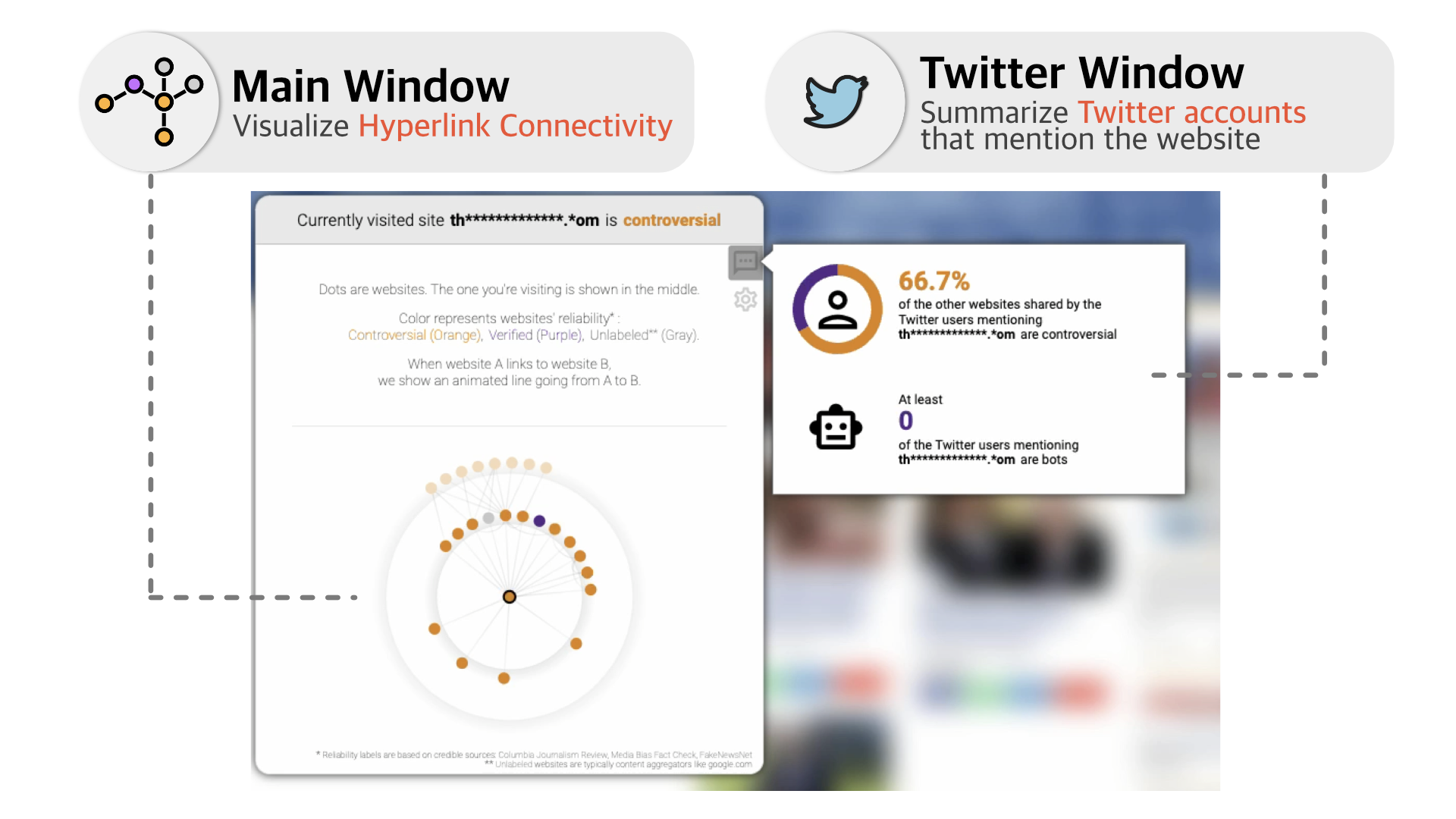Explaining Website Reliability by Visualizing Hyperlink Connectivity
Seongmin Lee, Sadia Afroz, Haekyu Park, Zijie J. Wang, Omar Shaikh, Vibhor Sehgal, Ankit Peshin, Duen Horng Chau
View presentation:2022-10-19T19:36:00ZGMT-0600Change your timezone on the schedule page
2022-10-19T19:36:00Z

Prerecorded Talk
The live footage of the talk, including the Q&A, can be viewed on the session page, Visualization Systems and Graph Visualization.
Keywords
Human-centered computing—Visualization—Visualization systems and tools—Visualization toolkits
Abstract
As the information on the Internet continues growing exponentially, understanding and assessing the reliability of a website is becoming increasingly important. Misinformation has far-ranging repercussions, from sowing mistrust in media to undermining democratic elections. While some research investigates how to alert people to misinformation on the web, much less research has been conducted on explaining how websites engage in spreading false information. To fill the research gap, we present MisVis, a web-based interactive visualization tool that helps users assess a website’s reliability by understanding how it engages in spreading false information on the World Wide Web. MisVis visualizes the hyperlink connectivity of the website and summarizes key characteristics of the Twitter accounts that mention the site. A large-scale user study with 139 participants demonstrates that MisVis facilitates users to assess and understand false information on the web and node-link diagrams can be used to communicate with non-experts. MisVis is available at the public demo link: https://poloclub.github.io/MisVis.